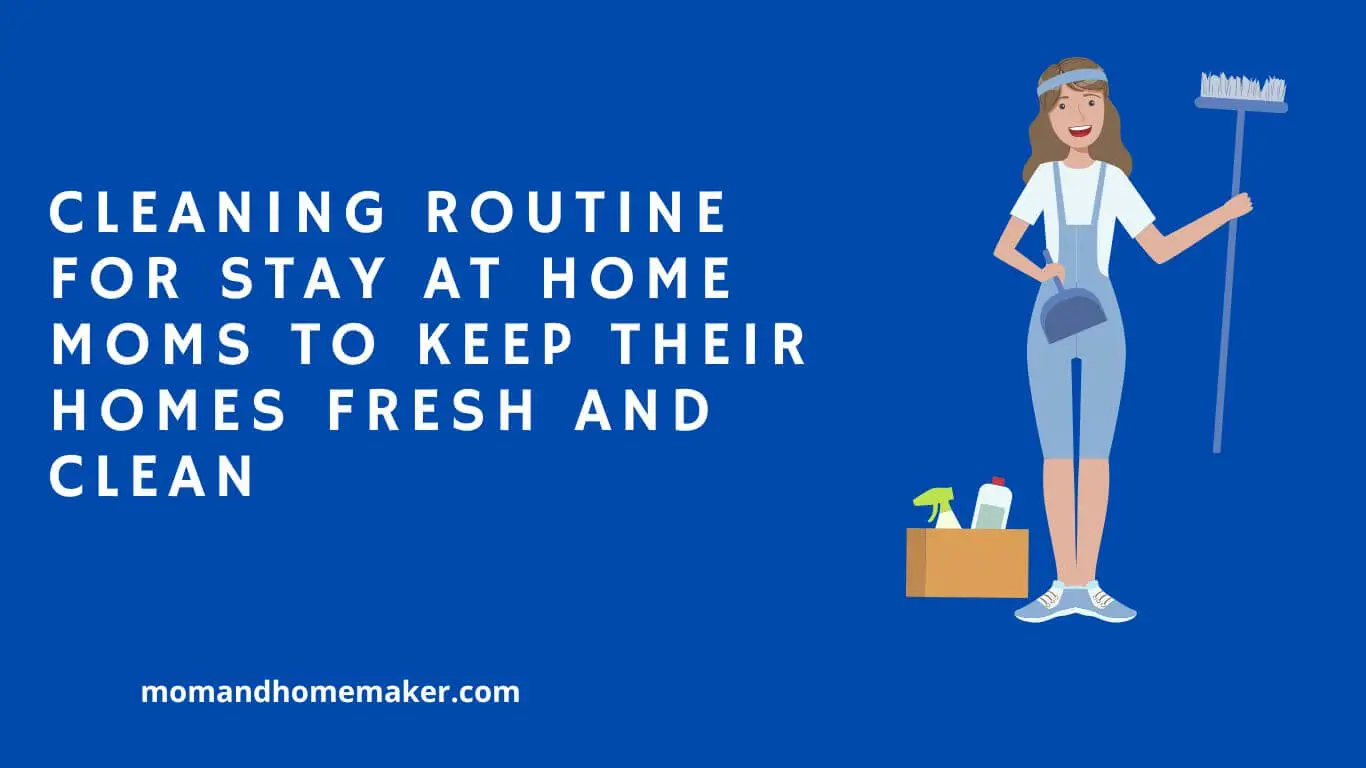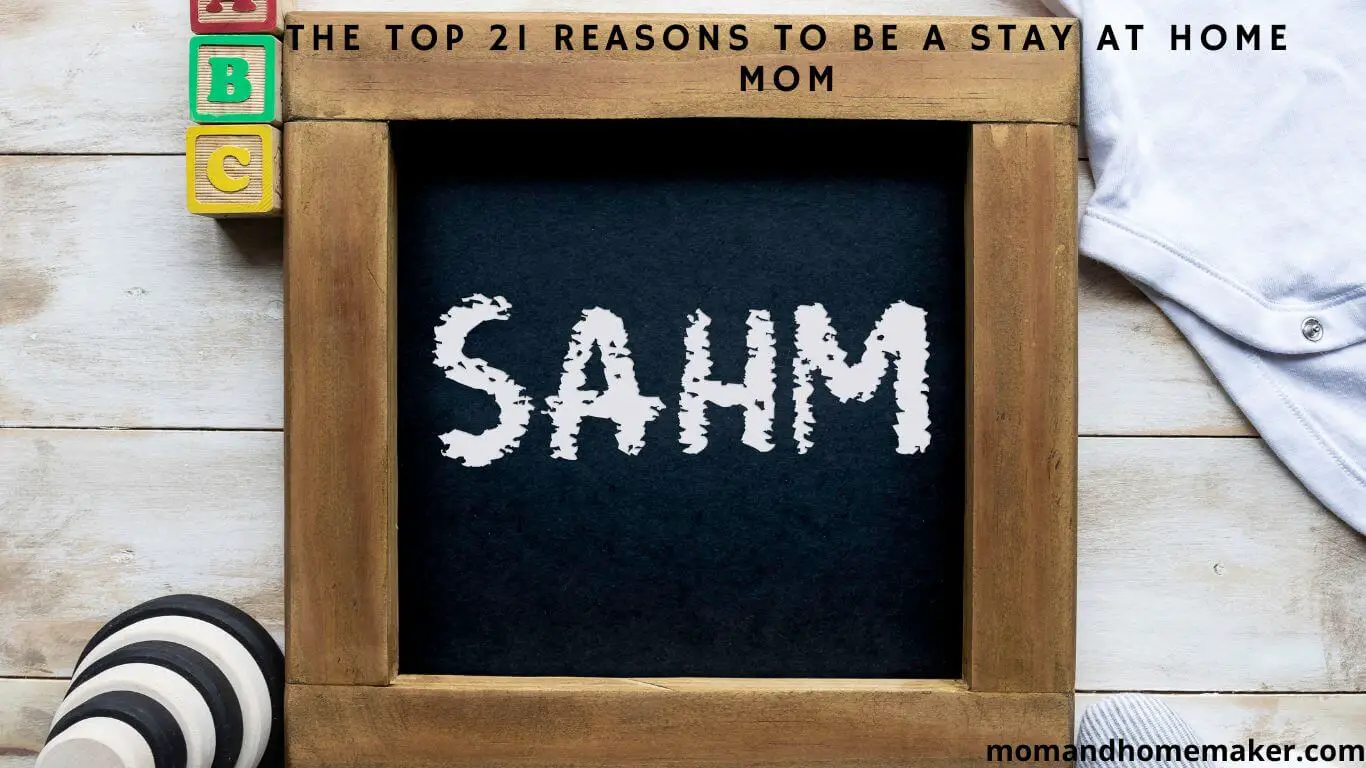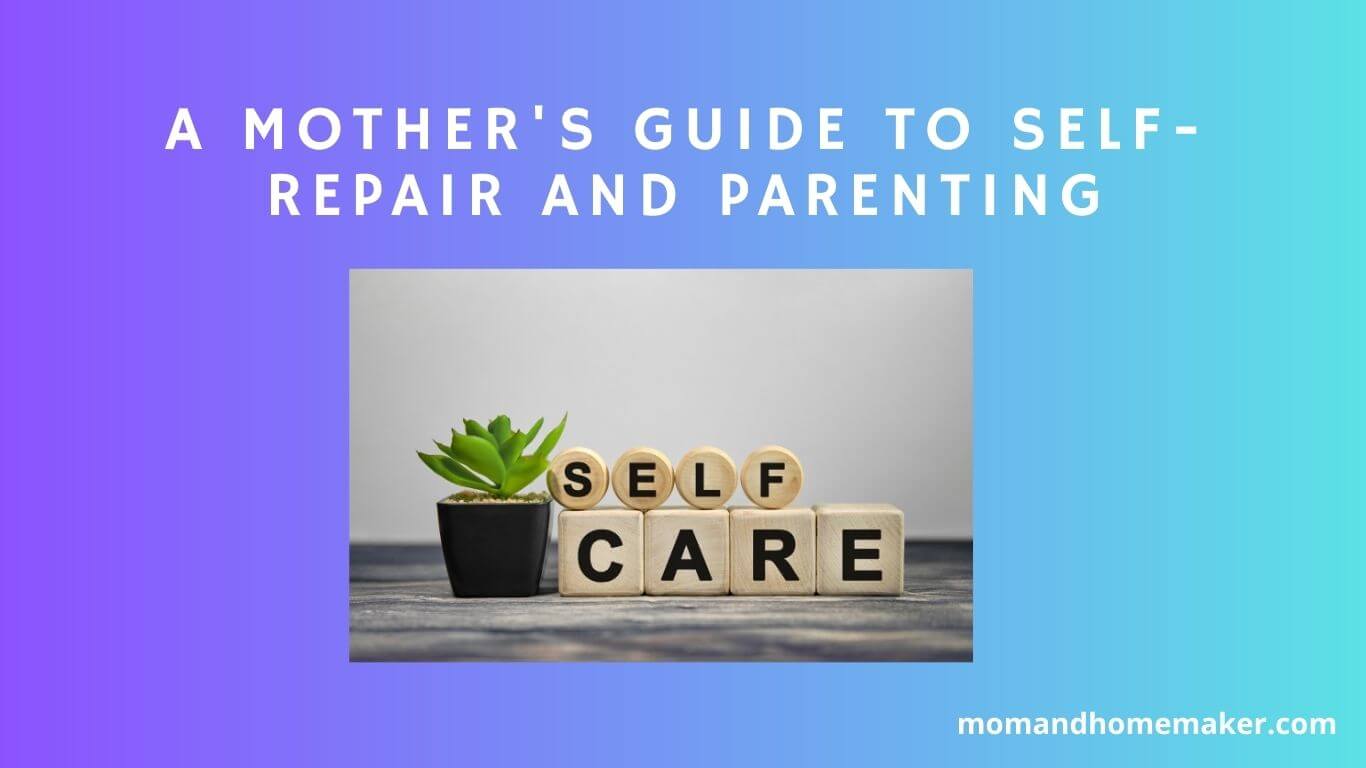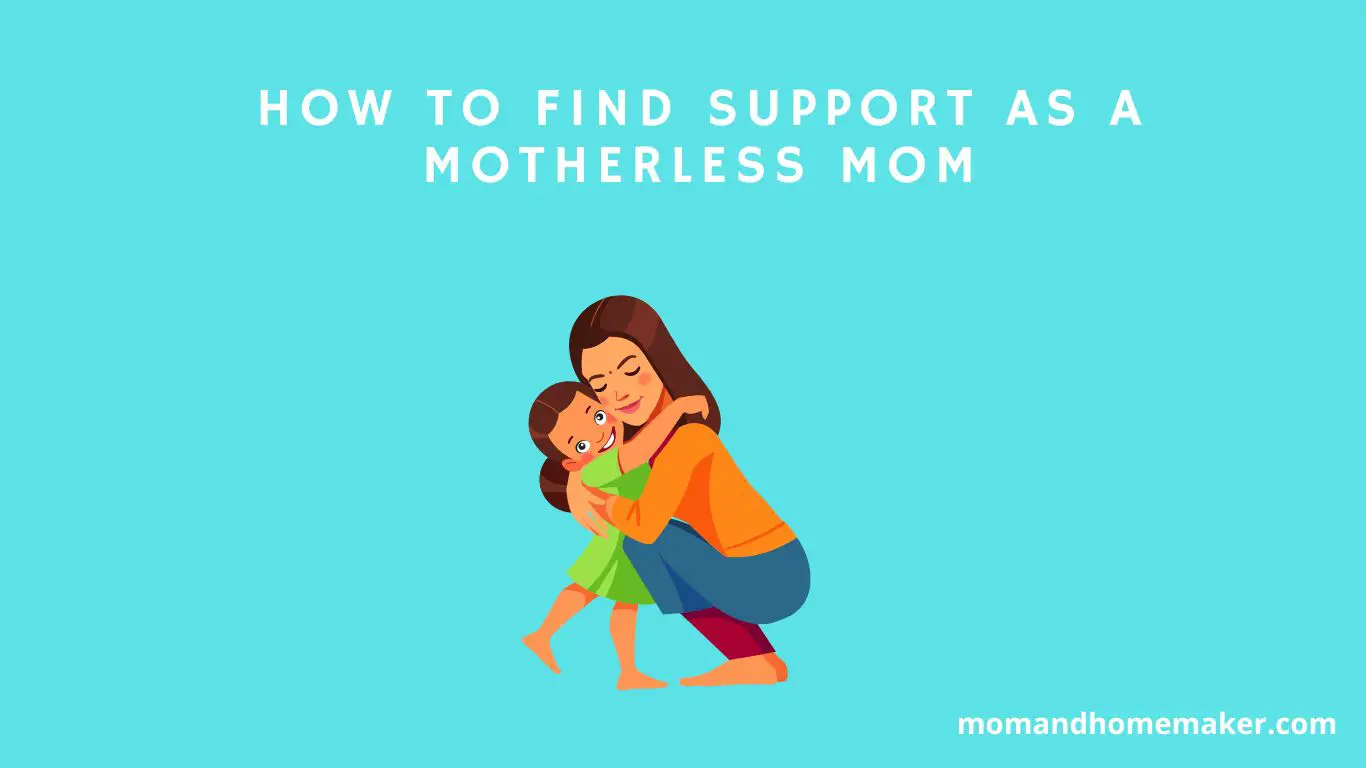Have you ever stopped to think about how stay-at-home moms manage their daily tasks and responsibilities with seemingly superhuman abilities?
While it may seem effortless from the outside, the reality is that they bear an invisible burden of exhaustion and overwhelming demands that leave them yearning for a moment to simply catch their breath.
Physical and Mental Exhaustion
Caring for your family and managing household tasks can leave you feeling exhausted and mentally drained. The constant balancing act of chores, childcare, and possibly work can wear you out. It’s important to recognize the signs of burnout and prioritize self-care to stay well.
To combat physical exhaustion, try adding short bursts of activity to your day. A quick walk or stretch can boost your energy. Eating nutritious meals, staying hydrated, and getting enough rest are also essential for rejuvenation.
For mental fatigue, find moments of peace and joy. Make time for hobbies you love, like reading, yoga, or taking a relaxing bath. Balancing responsibilities with personal time is key to avoiding burnout. Remember, taking care of yourself is crucial for your overall well-being.
Lack of Personal Time
Finding personal time can be a real challenge for stay-at-home moms juggling family and household responsibilities. It’s important to prioritize self-care and make time for activities that bring you joy. Here are some tips to help you manage your time effectively and carve out moments for yourself:
- Time Management: Prioritize tasks based on urgency and importance, use tools like planners to organize your day, and set boundaries to protect your personal time.
- Self-Care Strategies: Schedule self-care activities into your daily routine, delegate tasks to family members if possible, and engage in activities that bring you relaxation and joy.
- Me Time Importance: Remember that taking time for yourself isn’t selfish; it rejuvenates you and makes you better able to care for others. Me time allows you to recharge, reduce stress, and improve your mental health.
Balancing caregiving duties with personal time is essential to prevent burnout. By taking care of yourself, you enhance your ability to care for your family. So, don’t hesitate to prioritize activities that bring you happiness and fulfillment each day.
Constant Caregiving Demands
Constant caregiving can be overwhelming for stay-at-home moms, as they juggle household tasks and family responsibilities. The never-ending cycle of caring for others can leave you feeling drained and in need of support. To navigate these challenges, consider the following strategies:
Prioritizing Self-care
Taking care of yourself is crucial for your well-being and your ability to care for others. Find small moments in your day to focus on your own needs, whether it’s taking a brief walk, savoring a cup of tea, or practicing deep breathing exercises.
Embracing Break Time
Even short breaks can have a significant impact on your mental and physical health. Use these moments to recharge and reset, allowing yourself to return to caregiving tasks with renewed energy and focus.
Stress Management Techniques
Incorporating stress-relief techniques into your daily routine can help you cope with the pressures of constant caregiving. Whether it’s mindfulness practices, journaling, or engaging in a hobby you enjoy, finding healthy outlets for stress is essential.
Emotional Well-being Strain
Constantly juggling the emotional demands of caregiving can take a toll on stay-at-home moms, affecting their overall well-being and mental health. The continuous responsibility of looking after others without respite can lead to feelings of overwhelm, stress, and emotional exhaustion. To tackle these challenges, it’s essential to adopt coping strategies to navigate the emotional ups and downs that accompany being a stay-at-home mom.
Creating a strong support system is key. Surround yourself with individuals who recognize your role and can provide a listening ear or assistance when necessary. Engaging with other stay-at-home moms through online platforms or local community gatherings can foster a sense of camaraderie and shared experiences.
Prioritizing self-care practices is crucial for sustaining emotional resilience. Dedicate time to activities that bring you joy and relaxation, whether it’s reading a book, going for a walk, or enjoying a hobby. Uphold your mental well-being by setting boundaries and carving out moments of solitude to recharge.
In instances where the emotional strain becomes overwhelming, don’t hesitate to seek help. Whether it involves speaking with a therapist, joining a support group, or confiding in a trusted friend or family member, reaching out for support demonstrates strength, not weakness. Remember, tending to your emotional well-being is vital for you to continue caring for your family with love and empathy.
Social Isolation
Feeling disconnected from social interactions can significantly impact a stay-at-home mom’s well-being and mental health. The loneliness epidemic among stay-at-home moms is a real concern, but there are coping strategies and support systems that can help alleviate this issue.
Coping Strategies:
Developing ways to combat feelings of isolation is crucial. Engaging in activities that bring joy, like hobbies or exercise, can be beneficial. Setting small daily goals can also provide a sense of achievement and purpose.
Support Systems:
Building a strong support network is essential for mental health. Connecting with other stay-at-home moms in your community or online can be comforting. Joining support groups or attending local parenting meetups can foster a sense of belonging and understanding.
Community Engagement:
Actively seeking opportunities for community involvement is key. Volunteering, joining a book club, or attending local events can help you connect with others and break the cycle of isolation.
Monotonous Routine
Being a stay-at-home mom can sometimes feel repetitive, but there are ways to break the cycle and add some excitement to your daily routine. Taking short breaks during the day, trying out new hobbies, making time for self-care, exploring your creative side, and establishing healthy habits can all bring a fresh perspective and sense of purpose to your life.
Simple breaks, like stepping outside for a breath of fresh air or enjoying a quiet moment with a cup of tea, can help you recharge and approach your tasks with renewed energy.
Discovering new hobbies, whether it’s painting, gardening, cooking, or learning a musical instrument, can ignite your creativity and bring joy to your days.
Making self-care a priority is essential for your well-being. Whether it’s indulging in a relaxing bath, following a skincare routine, or losing yourself in a good book, taking care of yourself can rejuvenate your mind and body.
Engaging in creative activities like writing, crafting, or DIY projects can be a great outlet for self-expression and stress relief, giving you a sense of accomplishment and relaxation.
Establishing wellness routines that include exercise, healthy eating, and enough rest is key to maintaining your overall health and being able to care for your family effectively. Prioritizing your well-being will benefit not just you, but those around you as well.
Sleep Deprivation
Constantly being woken up at night by your little ones can result in significant sleep deprivation for stay-at-home moms. This lack of rest can profoundly impact your well-being, affecting various aspects of your life.
- Sleep Quality and Self-Care: The interrupted sleep not only reduces the amount of sleep but also its quality. This can make it difficult to take care of yourself, which is essential for your health and happiness.
- Energy Levels and Mental Health: The tiredness from lack of sleep can leave you feeling exhausted and irritable, affecting your energy levels and mental well-being. It can be challenging to handle daily parenting tasks when you’re running on empty.
- Parenting Challenges and Exhaustion: Balancing parenting responsibilities with insufficient rest can worsen feelings of exhaustion. This cycle of fatigue can make it hard to remain patient and attentive with your children, leading to added stress and feelings of inadequacy.
Recognizing the importance of rest is crucial not only for your well-being but also for your productivity. Prioritizing quality sleep can help you rejuvenate, boost your resilience in facing daily duties, and ultimately lead to a more satisfying experience as a stay-at-home mom.
Need for Self-Care
Experiencing sleep deprivation can emphasize the crucial need for self-care among stay-at-home moms. As you devote yourself to caring for your family, it’s important to prioritize your well-being to effectively fulfill your roles. Practicing self-care isn’t selfish but rather a way to ensure you can continue to support your loved ones without feeling overwhelmed.
To manage stress and protect your mental health, consider incorporating simple wellness practices into your daily routine. Taking time for activities that bring you joy and relaxation, like reading a book, enjoying a soothing bath, or going for a leisurely walk, can have a significant impact on your overall well-being. Additionally, practicing mindfulness or meditation can help calm your mind and reduce stress levels. By taking care of yourself, you’ll be better equipped to take care of those you love.
Balancing Multiple Roles
Balancing multiple roles as a stay-at-home mom requires careful planning and effective time management. You juggle various responsibilities daily, from caring for your children to managing household tasks. Here are some essential strategies to help you navigate this demanding role:
- Efficient Time Management: Planning your day wisely helps you maximize your time. Allocate specific time blocks for different activities to ensure you address all your responsibilities efficiently.
- Prioritize Important Tasks: Identify the most crucial tasks that require immediate attention. By prioritizing tasks, you can focus on what truly matters and avoid feeling overwhelmed by less urgent matters.
- Establish Clear Boundaries: Setting boundaries with your family members is vital to create time for yourself and your tasks. Communicate your needs and limits clearly to maintain a healthy balance between caring for others and self-care.
Feeling Undervalued
Feeling unappreciated can be tough for stay-at-home moms, affecting their well-being and motivation. When a mom who devotes her time to caring for her family doesn’t receive acknowledgment, it can lead to feelings of being undervalued.
Not getting recognition for the hard work and sacrifices made can make emotional validation seem out of reach.
It’s natural to want some form of appreciation for the efforts put in each day. Simple gestures like a thank you or a small acknowledgment can make a big difference in boosting morale.
Without this recognition, feelings of being unappreciated and insignificant can start to take a toll on confidence and fulfillment.
The struggle of feeling undervalued can seep into various areas of life, impacting motivation to continue giving one’s best.
Seeking emotional validation and appreciation for the dedication and love shown to the family is crucial. Remember, you deserve acknowledgment and praise for the incredible work done each day.
Burnout Warning Signs
Recognizing signs of burnout is essential for stay-at-home moms to maintain their well-being and energy levels. As you navigate daily challenges, it’s crucial to pay attention to warning signals that suggest you may be experiencing burnout. Here are some key indicators to watch for:
- Feeling Overwhelmed: If you constantly feel overwhelmed, anxious, or struggle to cope with daily tasks, it may be a sign that burnout is approaching. Implementing stress management techniques like deep breathing exercises or mindfulness practices can help reduce these feelings.
- Neglecting Self-Care: When self-care practices such as eating well, exercising, or getting enough sleep start to slip, it’s a clear indication that burnout could be looming. Prioritizing self-care isn’t selfish; it’s necessary for maintaining your physical and mental well-being.
- Isolation and Withdrawal: Feeling isolated or withdrawing from social interactions can be a warning sign of burnout. Seeking support from friends, family, or support groups can offer a valuable outlet for sharing your feelings and experiences.
Importance of Me-Time
Dedicating time for yourself is essential for your well-being as a stay-at-home mom. When you spend your days taking care of your family, it’s easy to overlook the significance of self-care.
Setting aside some alone time for yourself, enjoying personal hobbies, practicing relaxation techniques, and prioritizing your mental wellness are key elements of a balanced lifestyle.
Engaging in personal hobbies helps you maintain a sense of self outside of motherhood. By practicing relaxation techniques, you can reduce stress levels and enhance your emotional well-being.
Spending time alone allows for reflection and rejuvenation, while self-care practices boost self-esteem and overall happiness. Focusing on mental wellness also improves your ability to handle daily challenges effectively.
Impact on Overall Health
Prioritizing time for yourself as a stay-at-home mom isn’t just beneficial for your mental well-being but also has a significant impact on your overall health.
Taking care of yourself is essential to effectively caring for others. Here’s how focusing on your well-being can positively influence your overall health:
- Stress Management: Engaging in self-care activities can help you better manage stress levels. Simple activities like going for a short walk, practicing deep breathing exercises, or enjoying a quiet moment with a cup of tea can significantly reduce stress.
- Self-Care Practices: Incorporating regular self-care practices into your routine is crucial for maintaining good health. This can include activities such as reading a book, taking a relaxing bath, or pursuing a hobby you enjoy. Prioritizing self-care allows you to recharge and enhance your overall well-being.
- Healthy Boundaries: Setting boundaries is key to maintaining a healthy work-life balance. Learning to say no when necessary, delegating tasks, and seeking support from your partner or loved ones can help prevent burnout and promote better health outcomes.
Incorporating mindfulness techniques and relaxation strategies into your daily life can further support your overall health and well-being as a stay-at-home mom.
Remember, taking care of yourself isn’t selfish; it’s necessary for you to continue caring for your family with love and vitality.
Relationship Strain
When you’re a stay-at-home mom, managing relationship struggles can be tough. Balancing your kids, home, and partner can lead to communication challenges. It’s essential to find time for honest conversations and really listen to each other to keep your bond strong.
Time management is key in handling your roles as a mom and a partner. Setting aside quality time for your relationship, like a cozy date night or a leisurely stroll, can help nurture your connection. Prioritizing this time together can build a stronger relationship and create lasting memories.
Supporting each other emotionally is crucial during tough times. Acknowledge your partner’s feelings and be a source of comfort and encouragement. When conflicts arise, approach them with empathy and work together towards solutions. Remember, compromise is key in a healthy relationship.
Guilt and Pressure
Experiencing guilt and pressure as a stay-at-home mom is a common challenge that can impact your well-being. It’s important to recognize these feelings and take proactive steps to address them.
Here are some strategies to help you cope with guilt and reduce pressure:
- Managing Guilt: Understand that it’s alright to prioritize your own well-being. Guilt often arises from unrealistic expectations, so be gentle with yourself and celebrate even small achievements.
- Relieving Pressure: Divide tasks into smaller manageable parts and set achievable goals. Delegate tasks where possible and remember that perfection isn’t necessary in everything you do.
- Self-Care Practices: Carve out time for activities that recharge you, whether it’s reading a book, going for a walk, or engaging in a hobby. Self-care isn’t selfish; it’s vital for your mental and emotional health.
To navigate guilt and pressure effectively, consider seeking support from other stay-at-home moms or joining a community group. Establishing boundaries with yourself and others is crucial – learn to say no when needed and communicate your needs clearly. Remember, taking care of yourself enables you to better care for your family.
Creative and Personal Development
As a stay-at-home mom, it’s common to feel guilty and overwhelmed, but it’s crucial to prioritize your well-being by focusing on personal growth. Taking time for creative and personal development activities can help you recharge and find fulfillment.
Here are some simple ideas to kickstart your journey towards self-improvement:
- Art Therapy: Engage in creative art activities to reduce stress and express yourself.
- DIY Projects: Explore hands-on craft projects to boost creativity and problem-solving skills.
- Mindful Meditation: Practice mindfulness techniques for mental clarity and anxiety reduction.
- Writing Journal: Start a personal journal for self-reflection and emotional release.
- Nature Walks: Spend time outdoors in nature to refresh your mind and improve your mood.
Incorporating these activities into your routine can provide a much-needed break from daily demands, allowing you to focus on your personal growth. Remember, taking care of yourself isn’t selfish; it enables you to better care for your family. Embrace these opportunities for creative and personal development to cultivate a more fulfilling and balanced life.
Recharging for Better Parenting
Prioritizing self-care and regular recharging is crucial for effective parenting. Remember, taking care of yourself isn’t selfish; it’s essential for being the best parent you can be. Here are some key strategies to help you recharge for better parenting:
- Self-care practices: Incorporate self-care into your daily routine, such as meditation, exercise, reading, or a relaxing bath. Find activities that rejuvenate you and make time for them.
- Recharging activities: Engage in activities that bring you joy and relaxation, like walking in nature, painting, or listening to music. Unwind and recharge your energy with activities that uplift you.
- Parenting support: Connect with parenting support groups or other parents who understand your challenges. Sharing experiences and advice can create a sense of community and alleviate parenting stresses.
Conclusion
Stay-at-home moms need breaks to recharge and prioritize their well-being. Research shows that 85% of stay-at-home moms experience burnout and stress due to the constant demands of caregiving and lack of personal time.
Taking a break is crucial for mental health and overall happiness, enabling moms to be more effective caregivers and partners. It’s important to remember that it’s perfectly okay to take time for yourself.













